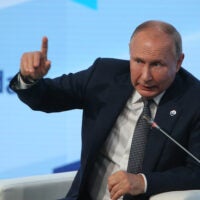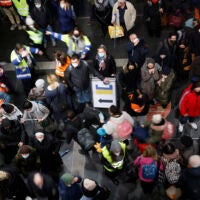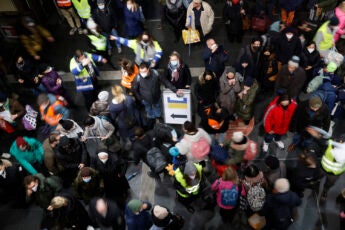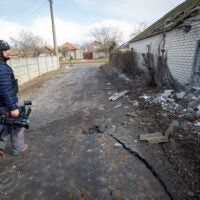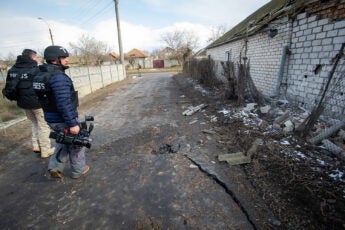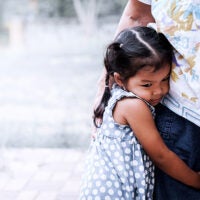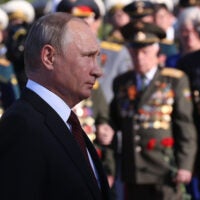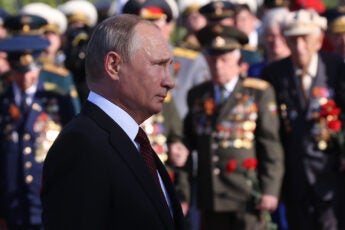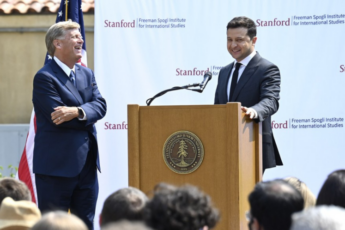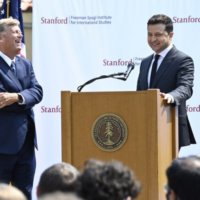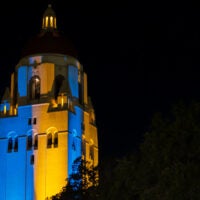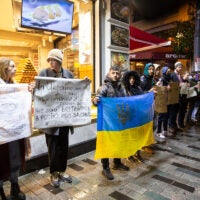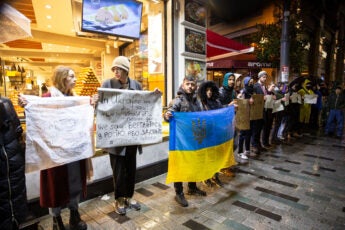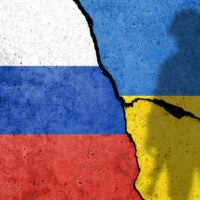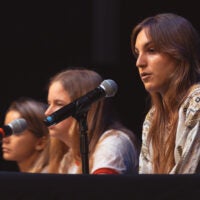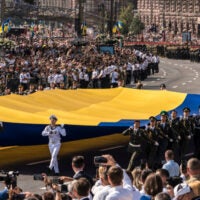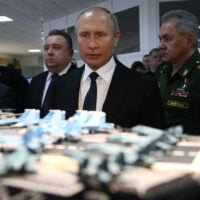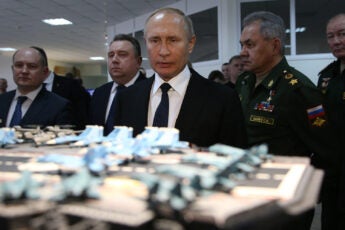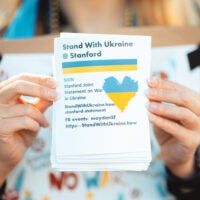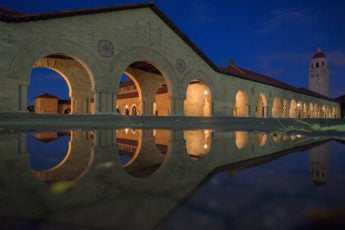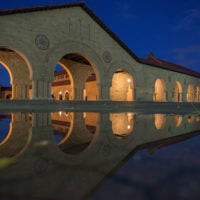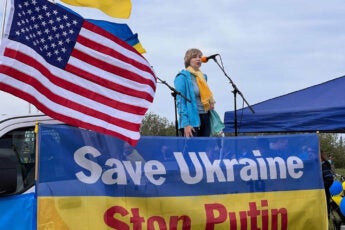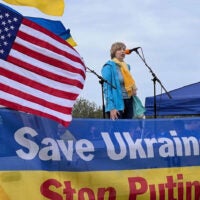When Russia invaded Ukraine on Feb. 24, 2022, the Stanford community rallied to show its support for the Ukrainian people: Students hosted events, scholars offered insights into the crisis, professors hosted teach-ins, and in an unprecedented demonstration of solidarity, the Hoover Tower was illuminated in the yellow and blue colors of the Ukrainian flag.
For many, the unprovoked invasion was seen as an affront to the global world norms established after WWII.
“I’m also concerned, more broadly, about the implications of this invasion for our world,” said Stanford President Marc Tessier-Lavigne to the Faculty Senate on the day of the invasion. “The peace established in Europe after World War II – while not complete or unbroken before now – has nevertheless stood as a pillar of stability. The launch of a major land war in Europe is an extraordinary and shocking event of historic proportions.”
Scholars from across the Stanford community – from former diplomats to students – have shared some of their research and work preserving and understanding that rich history and what the invasion represents domestically for Ukraine as well as internationally. Others also provided expertise on a range of issues that have emerged from the crisis, such as confronting pro-Kremlin disinformation online, understanding the nuclear threat Russia poses, and what makes reporting this conflict unique from other wars.
Here is some of that insight, and more.



